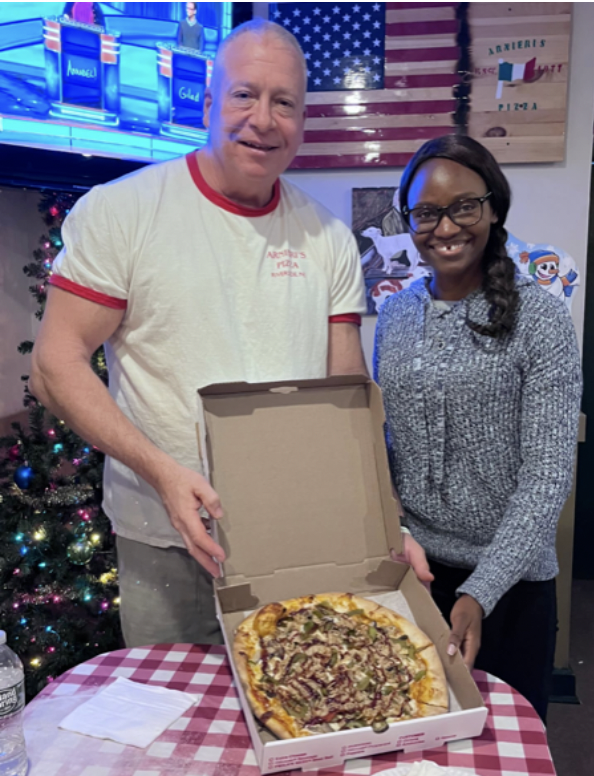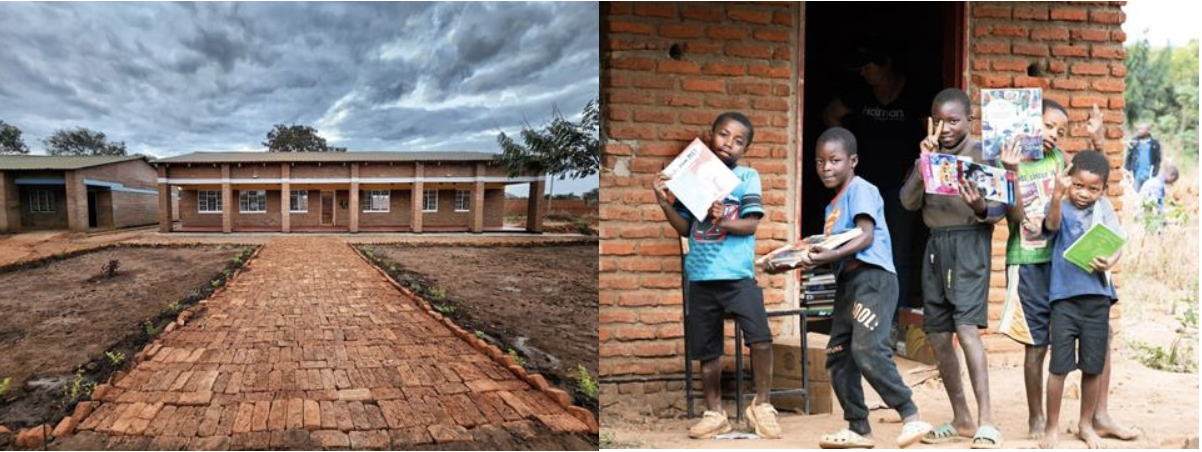
“Let’s go to Bethlehem and see this thing that has happened…” Luke 2:15
“I’m 63,” confessed Tony with a hearty laugh. “Never really shared my feelings in public prior to our trip.”
“My dad was a tough Italian guy,” he continued with a chuckle. “Feelings?? You kidding. We were never asked to share our feeeeeelings.”
An odd evening. Eighteen people packed into a family owned Pizza Parlor in the gritty town of Riverside, New Jersey—sharing their “feelings” about a mission trip we’d taken together six months earlier to Malawi, Africa.
Our eclectic team was comprised of sales, IT, management and marketing personnel from a local auto company—and Tony. Their goal: build a library for one of our Malawian high schools. They did it. And collected 40,000 books! Tonight’s celebration was our team reunion. Physically, we were a world away from the dusty roads, mud huts, open markets and warm-hearted people of that sub-Saharan country. Emotionally we were still there, reliving our memories.
“I’ve been running this pizza shop for 47 years,” resumed Tony. “Spent most my life in this neighborhood—right here on this corner. I didn’t really want to go Africa, but I decided to support my wife and her co-workers. It’s changed everything.”

For years, I’ve been fascinated by the concept of behavioral change. What causes people to alter assumptions and change perspectives? What experiences create opportunities to see the world through new eyes? How do our circle of friends and acquaintances expand to reflect a more diverse picture of the human family? We all know change—especially deep change—is difficult.
And all of us, if we’re honest, are prone to ruts. Creatures of habit, I guess. We wake up. Grab a cup of coffee. Go to work. We frequent the same stores and social settings. Months turn into years. Years into decades. One day we realize our time on earth is drawing to a close and must acknowledge that opportunities to grow and change have passed. We’ve missed, in the words of sociologist Jack Mezirow, those “disorienting” dilemmas needed to ignite deeper reflection and make us more fully alive. Fortunately, a service trip to Africa was one of those experiences for Tony.
“Never could have imagined this a year ago,” concluded Tony, watching his new family of brothers and sisters enjoy his pizza. ”I’ve got new friends from different countries. My world is bigger. Everything has changed. My outlook on life, my priorities. I’m grateful now for my blessings.”
There’s a Haitian proverb: “We see from where we stand.” For four decades, Tony stood at the intersection of Middleton and Hancock Streets in Riverside, New Jersey. His life was experienced from that vantage point. Then, Tony shifted the ground on which he stood—to the red soil of the eighth poorest country in the world. He now sees differently.
I believe Christmas calls us to leave the familiar to stand in new locations. Like the lowly shepherds, we’re asked to leave our familiar fields to find the Christ-child in unassuming places. Like the Magi, we’re asked to leave our palaces of power and privilege to find the Christ-child among the humble and forgotten. Like the fishermen Peter, James, and John, we are asked to leave our nets and follow the One who leads us to places others might choose to avoid.
These journeys open our hearts and eyes to things God needs us to see and feel. And that might be the most meaningful gift we receive this Christmas. A gift that can’t be wrapped and put in a box—even a box of pizza.
